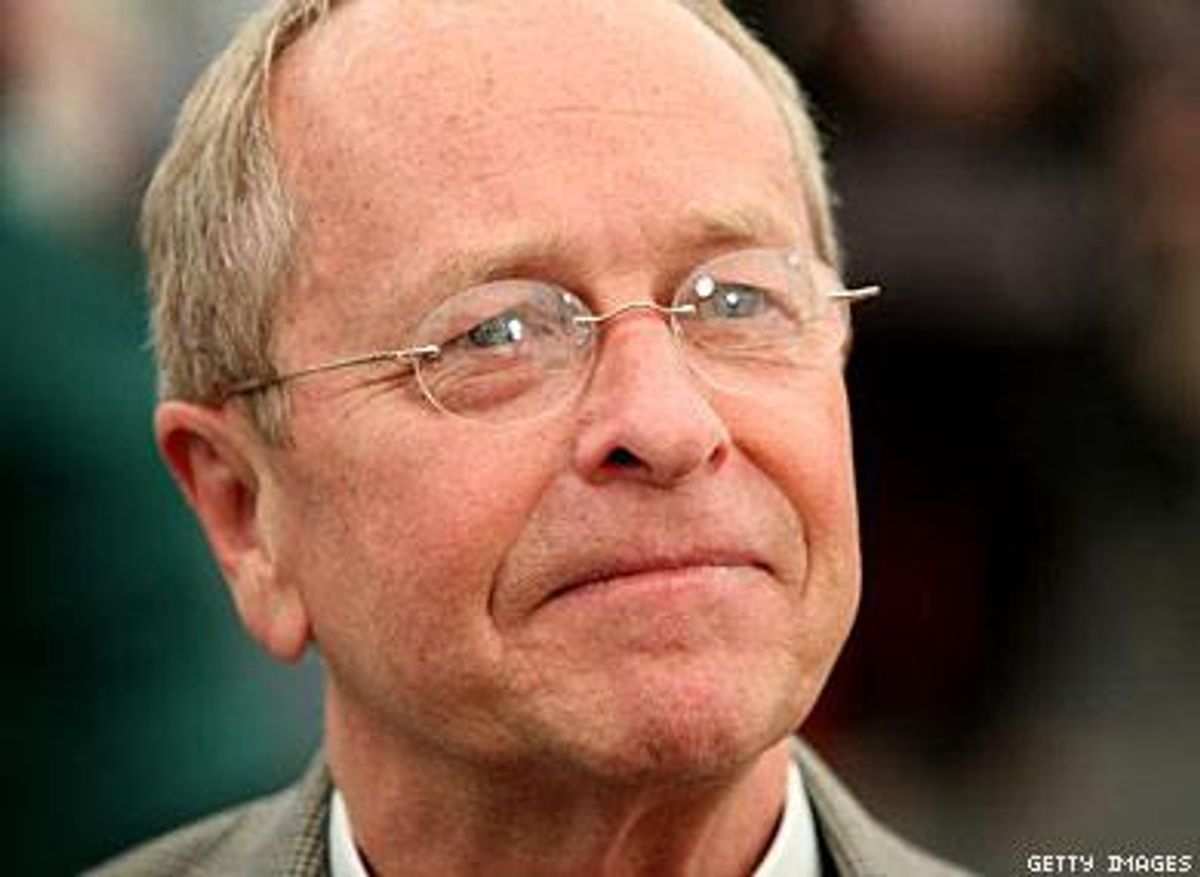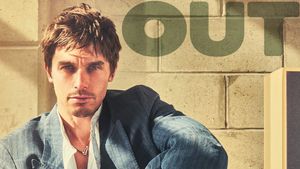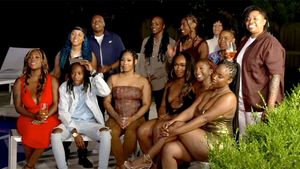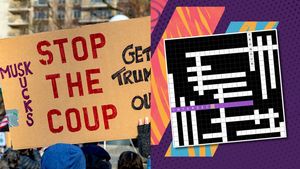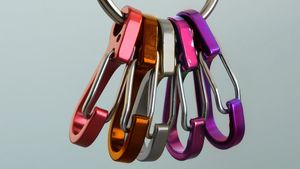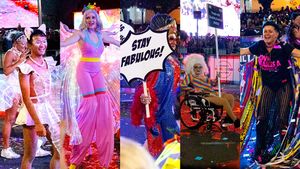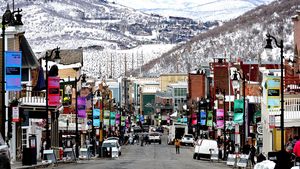New Hampshire's Bishop Gene Robinson has had a busy month -- delivering the invocation at the inaugural opening ceremony, sitting on the President's platform during the swearing in, and being the focal point of so much media fascination.
Besides the LGBT folks on President Obama's staff, Robinson probably has more insights about the new commander-in-chief's first couple weeks on the job than any gay politico, and here he shares his reflections with Advocate.com and tells us what he anticipates in the days ahead.
Advocate.com:I noticed that you addressed your opening ceremony invocation to the "God of our many understandings." What inspired that approach?V. Gene Robinson: What I wanted this prayer to be was something that, really, Americans of every faith could pray along with me. I went back and read inaugural prayers for the last 30-40 years and was just horrified at how overtly and aggressively Christian they were and all I could think was, 'If I'm a Jew, If I'm a Muslim, If I'm a Sikh or Hindu, where am I in this prayer?'
So I addressed the prayer to "the God of our many understandings" -- it's actually something I learned in the 12-step recovery program I'm in for alcoholism. My experience is, it's a phrase that allows people to buy in, no matter what their understanding of God is, and is inclusive in a profound way. No one of us knows everything there is to know about God. I would say that no one religion or one denomination knows all that there is to know about God. And so each of us has our own perception, owns our own piece of God.
You also asked for certain things, such as "anger at discrimination" and "discomfort," that are pretty atypical in prayers. There is a wonderful blessing that I use often in my ministry -- it's called a four-fold Franciscan blessing. It prays for things that we wouldn't normally consider to be blessings -- like tears, like discomfort. And the reason I love that blessing is that it takes people by surprise and they really perk up and listen. I took that as my inspiration.
The most amazing feedback that I got was from non-Christian people -- a number of Jews, a number of un-churched people, a number of people from different contexts who would not describe themselves as Christian -- who said to me that, for the first time ever at such an event, they felt included and felt as if they could, in fact, pray along with me. That really meant the world to me.
Also, on the other side, I have received hundreds -- maybe even as many as a thousand -- email messages and letters and so on from "good Christian people" literally just attacking me for not using Jesus's name, not using the name of the trinity, saying that I abandoned my faith, that I had denied Christ. There's almost more negative reaction to that than anything I've done in the last five years.
They may have even forgotten you were gay.Exactly. Who would have thought I could make them forget that?
I was particularly struck by the contrast between your prayer and that of Rick Warren, who invoked the name of Jesus in several different languages. And then sort of forced us all to say "The Lord's Prayer." I have to say that I love "The Lord's Prayer" -- it's a part of my faith tradition, it's always been a part of my life. But for the first two or three phrases, I just choked on the words, I just couldn't do it - just because I was so aware of the people around me.
And then my political mind kicked in and I thought, it will be just my luck that the CNN cameras will be on me not praying "The Lord's Prayer" in the middle of this, and I'm not here to make a big protest against Rick Warren. So I did join in but, literally, I found myself choking on what I consider to be beloved words.
Speaking of politics, you've said in a few pre-inaugural interviews that you have pressed President Obama on LGBT issues and you're convinced that he's a friend of the community. What specifically did you raise and what were his reactions? I don't remember the specifics, but knowing me, I raised "don't ask, don't tell," DOMA, I know I mentioned a fully inclusive ENDA -- and on those things, he was quite specific in terms of being right where I wanted him to be. The place where that diverged of course, as we all know, none of the viable Democratic candidates endorsed gay marriage. But my sense is that he understands why all of the legal protections and rights that come with marriage are appropriate and necessary for gay and lesbian couples and will be supportive of that. And I'm not at all convinced that he won't eventually be supportive of gay marriage. But I think for political reasons he knew that would be very, very difficult in the primary fight not to mention the general election.
Of course, earlier this month, the Windy City Times uncovered the fact that during his 1996 bid for the Illinios state senate, President Obama said on their questionnaire that he supported full gay marriage rights. My guess is -- and I have absolutely no evidence from him about this -- that as he began to think about a possible run for the presidency, he was politically smart enough to know that he needed to win the general election in order to be able to do the things that he felt called to do and that, [gay marriage], in his and every other candidate's judgment, was a third rail.
As a person of faith, does that bother you at all? I think life in general is always a balancing act between what is right and what is workable. And you don't get a chance to do the right things a lot of times, if you're not in a place to affect those changes. So sometimes you're not able to say as frankly and as clearly, what's going on with you. Some people would see that as hypocrisy or compromise. I think it's the dance we all do. There are things that I personally believe that I would not say from a pulpit -- partially because I have a responsibility to the church, to teach what the church teaches and, as a Bishop, I'm a representative of that institution. Is that compromise, or is that selling out? I don't know. But maybe it's the dance we all have to do between the values we actually hold in our heart and what we're actually able to accomplish in a community as diverse as America.
Did you ever get clear on how it happened that your comments weren't included in HBO's production of the opening ceremony? No, so here's what I decided about that. First, there was probably no way to determine where and with whom that decision got made. Second of all, it was over, and I think the last thing the gay community needs to be doing right now is picking a fight with the new president or his inaugural committee. My feeling was, it was done, it was over, let's move on. I received formal apologies from both the inaugural committee and HBO. And I was just willing to let that go.
And as much I would have liked the viewing audience to have heard it, the attention that was drawn to the words I had spoken because of the controversy about why it had been eliminated, probably gave it more attention than it would have gotten if it had been included in the broadcast. The video of my prayer on YouTube, has had a quarter of a million hits and I'm getting feedback from all over the country about people who printed out my prayer and used it at a meeting, or used it at a church service, or whatever.
Is it true, as the London Times reported, that President Obama sought your counsel during the election, on what it was like to be a first? Partly true, partly not true. The headline gave people that impression that Barack had sought me out about that. Well, that's ludicrous. Barack Obama is quite his own person, and I'm the last person he needs to seek out about anything.
However, early on in the New Hampshire primary, we did get a chance to meet several times, and once we had quite a lengthy conversation about being the first. That's sort of a special bond I feel that I have with him because there are particular joys and especially particular burdens that come with being the first at anything. The very first thing he said to me when we met for the first time was, 'Well, you're a trouble maker,' and I said something like, 'It takes one to know one,' and we both laughed. Of course, at that point, he was on nobody's radar screen, in April or May of 2007.
Do you have anything to add? I continue to be confident that the new president understands us and our issues and that this will be the friendliest president to LGBT people that we have ever had in the White House. At the same time, I was very critical of his decision to invite Rick Warren and I really do believe that just because we are feeling positive, doesn't mean we can stop being vigilant or stop holding his feet to the fire about our issues.
In moments of disappointment, like when you first heard about Rick Warren, what spiritual concepts do you turn to in order to temper that disappointment? Right off the bat what I thought and what I often think is, no one of us always gets it right. That's just the human condition. Not even the best of us will always get it right.
